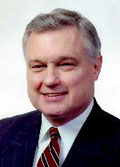

|
On December 23, 1996, the policy concerning the special issuance of airman medical certification ("waivers") to diabetic applicants who use insulin was changed in response to public comment on this issue that was requested in a Federal Register notice two years ago. A panel of distinguished endocrinologists I appointed had provided a protocol for selection of those applicants whose diabetes control and stability might warrant a special issuance of certification. We further developed the panel's recommendations and those of our Flight Standards Service to include provisions for periodic, specialized medical evaluations and for monitoring of each diabetic pilot by blood glucose determinations prior to and during flight. The Federal Register notice prompted an unusually large number of comments both for and against the proposed policy change. We heard from 26 medical organizations, including university-affiliated associations and diabetes treatment centers; 150 physicians; 2 aviation trade associations; 541 private individuals; and many members of Congress. The American Diabetes Association strongly supported a change in policy and endorsed a waiver system with stringent guidelines, such as that proposed by the panel of endocrinologists. The Aircraft Owners and Pilots Association and the Experimental Aircraft Association also supported medical certification of insulin-using diabetics on an individual basis. |
 |
After reviewing the information gathered and submitted, I decided that the special issuance of third-class medical certification to selected, qualified insulin-using diabetics who agree to abide by the protocol is appropriate. Applications for special issuance of first- or second-class medical certification, however, will not be considered at this time, and insulin-using, diabetic pilots receiving special issuance of a medical certificate may not fly their aircraft beyond the borders of the United States.
My decision was based on our evaluation of the expert recommendations of the endocrinologist panel; our success since 1991 with a similar protocol for air traffic control specialists; the protocol itself, which is designed to select out those individuals at highest risk for hypoglycemic reactions and to prevent those reactions during flight; our belief that, wherever possible, individual consideration should be given to any question of medical certification; and the FAA's long stated policy that permits a student, recreational, or private pilot to accept reasonable risks to his or her person or property that are not acceptable in the exercise of commercial or airline transport pilot privileges. We will carefully monitor the performance of the selected individuals, and I may modify or terminate the policy at any time. I believe my decision was the right one. AMEs can help by counseling insulin-using diabetics who may consult with them regarding certification. Information about the new protocol will be included in a future revision of the Guide for Aviation Medical Examiners. The protocol is now available from your regional flight surgeon, the Aero medical Certification Division, and from the CAMI Web Page:
| ŠAvStop Online Magazine Contact Us Return To News |